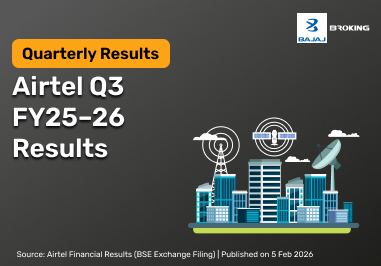What are Capital Gain Bonds?
Capital gain bonds are a type of financial instrument that offers tax exemptions on capital gains. These bonds are issued by the government or government-approved entities such as the Rural Electrification Corporation (REC) and the National Highways Authority of India (NHAI). Capital gain bonds in India fall under Section 54EC of the Income Tax Act, of 1961.
Bonds eligible under section 54EC
To qualify for capital gain tax exemption, the bonds must meet the following criteria:
- They must be issued by a government or government-approved entity.
- The bonds must have a lock-in period of 5 years.
- The maximum amount you can invest in these bonds is Rs. 50 lakhs in a financial year.
- The bonds must be purchased within 6 months from the date of selling the asset.
- The proceeds from the sale of the asset must be invested in the bonds, and the investor must hold the bonds for a minimum of 5 years to avail of the tax exemption.
Key Features of Capital Gains Bonds
Here, we have discussed for you the characteristics of capital gain bonds:
- Tenure: The lock-in period for capital gain bonds is 5 years. The bonds cannot be sold or transferred before the completion of the lock-in period.
- Interest rate: The interest rate on these bonds is fixed and ranges from 5% to 6% per annum. The interest earned on these bonds is taxable.
- Safety: Since capital gain bonds are issued by the government or government-approved entities, they are considered safe investments.
- Nomination: The nomination facility is available for capital gain bonds, which means you can nominate someone to receive the benefits of the investment in case of your demise.
Benefits of capital gain bonds
Here are the benefits of parking your funds in capital gain bonds:
- Tax exemption: One of the biggest benefits of investing in capital gain bonds is that they offer tax exemption on long-term capital gains. The maximum amount you can invest in these bonds is Rs. 50 lakhs in a financial year, and the investment amount is eligible for tax exemption.
- Capital protection: Since capital gain bonds are issued by the government or government-approved entities, they are considered safe investments. The capital invested is protected, and the bonds offer a fixed rate of interest.
- Low-risk investment: Capital gain bonds are low-risk investments as they are issued by government entities. Moreover, the investment is locked in for 5 years, which means there is no market risk involved.
- Diversification: Investing in capital gain bonds helps in diversifying your portfolio. It is a great way to balance the risk in your portfolio.
Disadvantages of capital gain bonds
Here are the disadvantages of investing your money in capital gain bonds:
- Low-interest rate: The interest rate on capital gain bonds is fixed and ranges from 5% to 6% per annum, which is lower than the market rate. However, the tax exemption on capital gains makes up for the lower interest rate.
- Lock-in period: The lock-in period for capital gain bonds is 5 years, which means the investor cannot sell or transfer the bonds before the completion of the lock-in period. This reduces the liquidity of the investment.
- Limited investment: The maximum amount you can invest in capital gain bonds is Rs. 50 lakhs in a financial year. This limits the amount of investment one can make in these bonds.
Who is eligible to invest in Capital Gains Bonds?
Capital Gains Bonds, specifically 54EC bonds, are accessible to a diverse group of investors. The primary eligibility includes:
Resident Individuals: Citizens of India who are resident in the country.
Non-Resident Individuals: Indian citizens residing abroad can also invest.
Hindu Undivided Families (HUF): This traditional family structure is recognized as eligible for investment.
Trusts: Certain trusts may qualify to invest based on specific provisions under the Income Tax Act.
These capital gain tax saving bonds provide an excellent opportunity for those looking to defer capital gains tax while securing a stable return on their investments. By adhering to the guidelines, investors can utilize the benefits offered under Section 54EC effectively.
Why should you invest in Capital Gains Bond?
Investing in Capital Gains Bonds is a strategic move for individuals looking to optimize their financial planning while saving on taxes. One of the most significant advantages of these bonds is the ability to defer capital gains tax, providing investors with increased liquidity and cash flow management. By utilizing these 54EC bonds, individuals can invest their realized capital gains within six months of the asset sale and enjoy tax exemption, thereby enhancing overall returns.
Key Reasons to Invest in Capital Gains Bonds:
Tax Benefits: Investments in capital gain tax saving bonds allow investors to enjoy tax exemption under Section 54EC of the Income Tax Act, significantly reducing their taxable income.
Stable Returns: These bonds typically offer a fixed interest rate, providing a reliable source of income. The 54EC bonds interest rate is usually competitive, ensuring steady earnings throughout the investment period.
Low Risk: Issued by government-backed entities, these bonds are considered a low-risk investment, making them suitable for conservative investors.
Long-Term Investment Horizon: With a minimum lock-in period of five years, these bonds encourage long-term financial planning while allowing investors to secure their capital.
Overall, interest on capital gain bonds is a crucial factor that enhances their appeal, offering a safe and tax-efficient way to invest post-asset sale.
How to invest in capital gain bonds?
Investing in capital gain bonds is a simple process, and it can be done online or offline. Here’s how you can invest in capital gain bonds:
- Choose the issuer: The first step is to choose the issuer of the capital gain bond in India. The government and government-approved entities such as NHAI and REC issue capital gain bonds. You can visit their websites to know more about the bonds they offer.
- Check eligibility: Before investing in capital gain bonds, it is essential to check whether you are eligible for the investment. The maximum amount you can invest in these bonds is Rs. 50 lakhs in a financial year. You must also invest the proceeds from the sale of a long-term asset within 6 months to be eligible for tax exemption.
- Fill out the application form: Once you have chosen the issuer and checked your eligibility, you can fill out the application form. The application form is available online or can be obtained from the issuer.
- Submit the application form: After filling out the application form, you must submit it along with the necessary documents. The documents required may vary from issuer to issuer, but generally, you need to submit a copy of your PAN card, address proof, and identity proof.
- Make the payment: After submitting the application form, you need to make the payment for the bonds. The payment can be made through a demand draft or online transfer. The payment must be made within the stipulated time frame mentioned in the application form.
- Receive the bonds: Once the payment is made, you will receive the capital gain bonds. These bonds can be held in Demat or physical form.
Final Thought
In conclusion, investing in capital gain bonds can not only help individuals save on taxes but also provide a stable source of income through regular interest payments. However, it is important to carefully evaluate the risks and returns associated with these bonds before making any investment decisions. Additionally, individuals must ensure that they meet the eligibility criteria set by the issuing authorities before investing in these bonds.
Overall, capital gain bonds can be a valuable addition to an investor’s portfolio, particularly for those who have recently sold a property and are looking for tax-saving investment options. However, as with any investment, individuals must conduct thorough research and analysis before making any investment decisions.
Disclaimer: Investments in securities markets are subject to market risks, read all the related documents carefully before investing.















